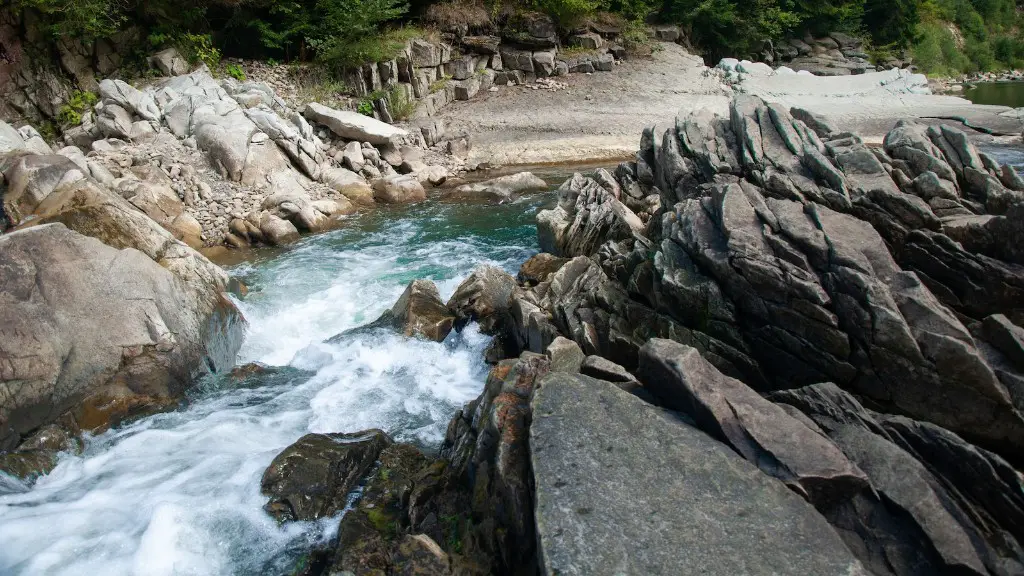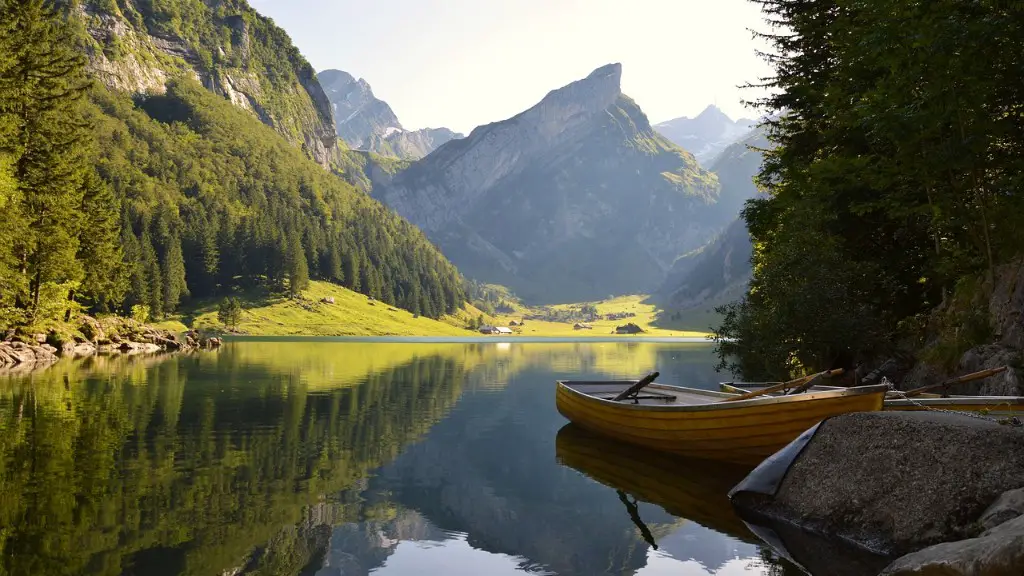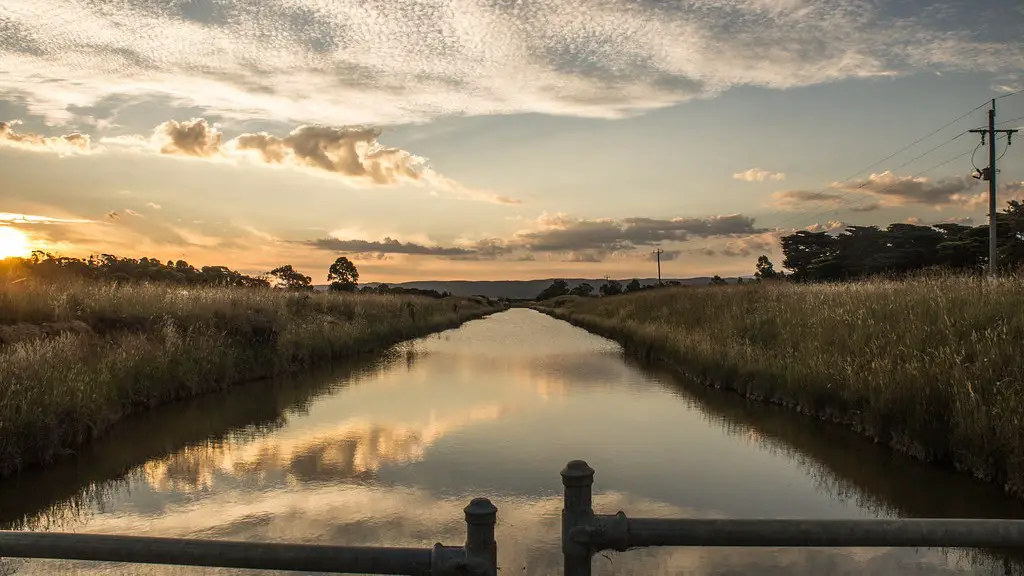Economic Significance
The Mississippi River plays a major role in the country’s economy. It is the second longest river in the United States and borders some 10 states. This not only provides an accessible trade route for these states but also a source of power and irrigation by way of numerous hydroelectric plants and various pumping systems. For instance, the Mississippi Delta has access to vast quantities of fresh water, which serves as a reliable source of irrigation to the surrounding farmlands. In addition, the river facilitates the transportation of agricultural commodities, dry bulk and break bulk cargo of all types, petrochemicals and natural resources. This creates millions of job opportunities while providing greater access to markets and resources. This further stimulates the economy with increased levels of trade and commerce, thus yielding higher levels of economic activity.
Environmental Impact
The mighty Mississippi is of immense significance to the environment. Even before its discovery in 1673, the native wildlife and vegetation had been thriving in this region for centuries. The river forms a plethora of wetlands, including bogs, marshes, swamps, oxbow lakes and bayous, which play a vital role in conservation. It is said that a single drop from the Mississippi River can travel from its origin in Lake Itasca all the way to the Gulf of Mexico in 81 days, and it may take years for the same drop to reach the ocean. During its journey, the water passes through various ecosystems, maintaining biodiversity and helping to regulate the state of the environment.
Historical Significance
The importance of the Mississippi River is also reflected in the rich history of its surrounding area. Even before its formal discovery, the region had been used by several Native American tribes as a popular trade route. Then, after Lewis and Clark’s historic expedition in 1804-1806, the river soon became the artery of the United States’ westward expansion, as settlers moved from the East across the Mississippi. This migration soon led to the rise of major Mississippi River cities, such as St. Louis and Memphis, which drove the growth of the overall American economy.
Tourism
The river’s scenic beauty has also been captivating visitors for centuries. In fact, the Mississippi is one of the most highly populated tourist destinations in the country due to its eclectic mix of cultural and geographical attractions. From the lighthouses of the Great Lakes to the live music of New Orleans and the iconic Gateway Arch of St Louis, the Mississippi River lends its allure to a plethora of cities, towns and points of attraction. The river also serves as home to numerous outdoor recreational activities such as fishing, hunting and boating.
Cultural Importance
The influence of the Mississippi River on culture is obvious throughout the region. After all, the river has been the source of literature, poetry, art and music for centuries, inspiring iconic works such as the novel ‘Huckleberry Finn’ and the famous ‘Mississippi Blues’. In addition, the river is deeply intertwined with the history and culture of African Americans as it was a common escape route for slaves during the 19th century.
Geopolitical Influence
The Mississippi River is also an influential geopolitical presence. As it forms the borders of 10 states, the river has been the source of several interstate territorial disputes throughout its history. For example, the 18th-century conflict between the British and French Empires ended with the signing of the Paris Treaty, which established the historic northern border of the river.
Societal Impact
The influence of the Mississippi River reaches far beyond the suggested parameters. In addition to facilitating trade and commerce, it provides a vital source of potable water and electricity to millions of people across the world. The maintenance of this resource is of utmost importance, owing to the fact that it connects a diverse range of communities and individuals across multiple states. Additionally, it is an iconic symbol of American life and identity that has been embraced in multiple ways, from the traditions of towns and cities along the river to the larger American identity; the Mississippi River truly is the lifeblood of the nation.
Food Supplies
Given the long expanse of the Mississippi River, many of its inhabitants depend heavily upon it for their food supplies. From the upper Midwest to the Delta, the river is one of the main sources of sustenance, providing an abundance of fish, shellfish, birds, reptiles and various vegetation. This has particularly been of help to the indigenous communities, who have developed a resilient relationship with the river that has, sadly, been weakened with the onset of globalization. Nevertheless, the importance of the Mississippi River in regards to the food supply of millions of people shouldn’t be underestimated.
The Mississippi’s impact can also be seen on the military sector. From the days of the Civil War to the more recent Vietnam War, the Department of Defense has relied heavily upon the Mississippi River in order to transport troop units, ships and other heavy logistics. The U.S. Navy relies on the Mississippi and its tributaries for access to industrial centers, major ports and military bases. In the present day, the U.S. Navy utilizes the rivers for both training exercises and strategic operations. This reinforces the importance of the Mississippi as a key component in the nation’s navy.
Climate Change
Climate change has greatly affected the Mississippi River. The rise in temperatures of the region has impacted agriculture, fisheries, water quality and hydrology. This has also accelerated evaporation and sediment loss; in short, it has created an environment where the river is no longer able to maintain its role as a reliable water source. Additionally, it has caused riverside destruction in the form of flooding and loss of life. This is unique in the sense that it further highlights the importance of protecting this resource and initiating the necessary steps in order to sustain the Mississippi River.


